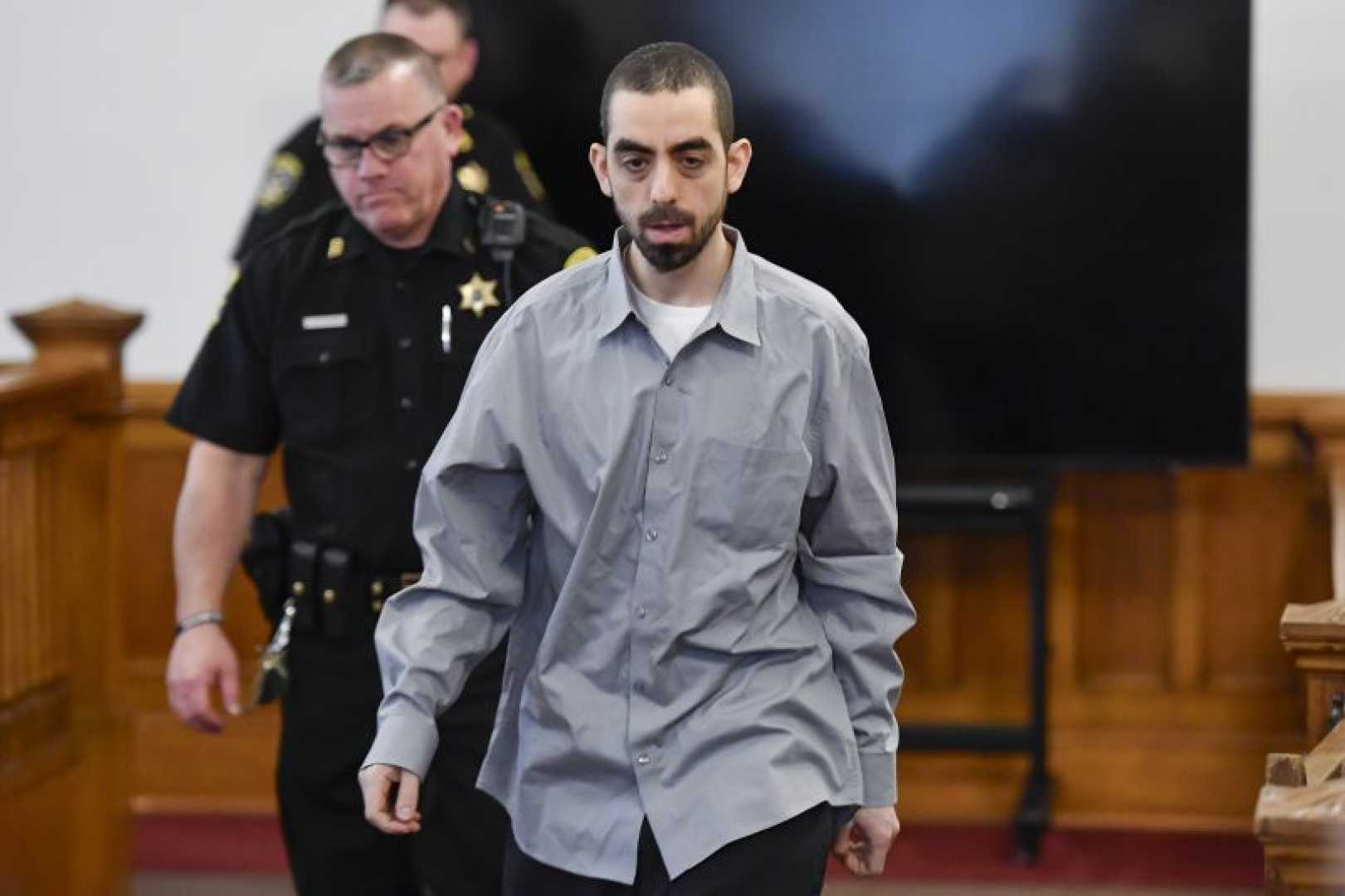News
Hadi Matar Found Guilty of Stabbing Salman Rushdie

MAYVILLE, N.Y. (AP) — Hadi Matar, a 27-year-old man from New Jersey, was found guilty on February 20, 2025, of attempted murder for his brutal stabbing attack on author Salman Rushdie. The incident occurred on August 12, 2022, as Rushdie was preparing to deliver a lecture at the Chautauqua Institution, a popular cultural venue in western New York.
The jury deliberated for less than two hours before convicting Matar on charges of attempted murder and assault for wounding another individual present during the attack. Jurors heard harrowing testimony and viewed a slow-motion video of the assault, which left Rushdie with significant injuries, including blindness in one eye.
District Attorney Jason Schmidt demonstrated the deliberate nature of the attack during his closing arguments. “I want you to look at the unprovoked nature of this attack,” Schmidt told the jurors, emphasizing Rushdie’s status as the only target in the crowded auditorium. He noted, “It’s foreseeable that if you’re going to stab someone 10 or 15 times about the face and neck, it’s going to result in a fatality.”
Rushdie testified during the trial, recounting the experience of being attacked. He described how he initially thought he was being punched until he realized he was bleeding. “I could see the blood pouring out. It was a very large quantity,” he stated. Surgeons testified that his injuries would have been fatal without immediate medical intervention.
Defense attorney Nathaniel Barone argued that the prosecution had failed to prove Matar’s intent to kill, claiming that the evidence presented was not sufficient for a conviction of attempted murder. Matar’s legal team pointed out that he was armed with knives rather than firearms, suggesting a less lethal intent. “You will agree something bad happened to Mr. Rushdie, but you don’t know what Mr. Matar’s conscious objective was,” Barone argued.
Despite the defense’s claims, Matar’s actions were met with overwhelming condemnation. The attack occurred while Rushdie was scheduled to speak about the safety of writers in exile, a topic deeply intertwined with his own experiences as the target of a fatwa issued decades earlier.
Following the verdict, Matar exhibited no visible reaction and was led from the courtroom in handcuffs. As he exited, he murmured, “Free Palestine,” a statement he had previously made during his trial proceedings.
Sentencing is set for April 23, and Matar faces a maximum of 25 years in prison for the charges. Barone contended after the trial that Rushdie’s notoriety influenced the prosecution’s decision to pursue attempted murder charges instead of lesser charges. “It’s been nothing more, nothing less. And it’s for publicity purposes. It’s for self-interest purposes,” Barone claimed.
Rushdie’s attack continues to resonate amid concerns for the safety of authors and artists. The ongoing fallout from this incident highlights significant discussions regarding free speech and the threats faced by those who challenge societal norms.












